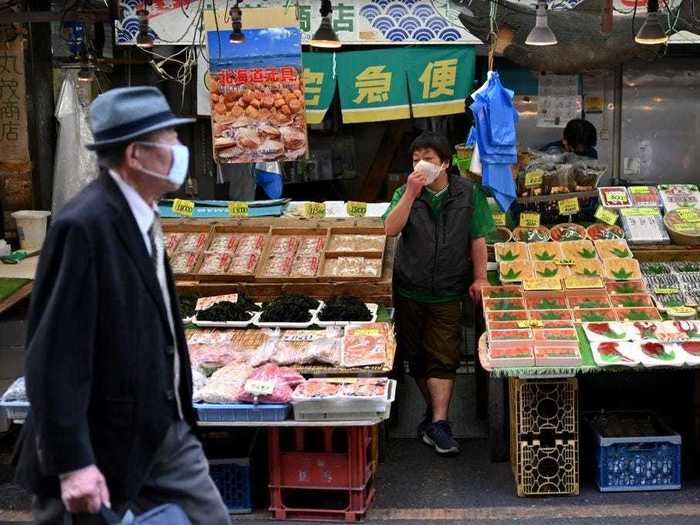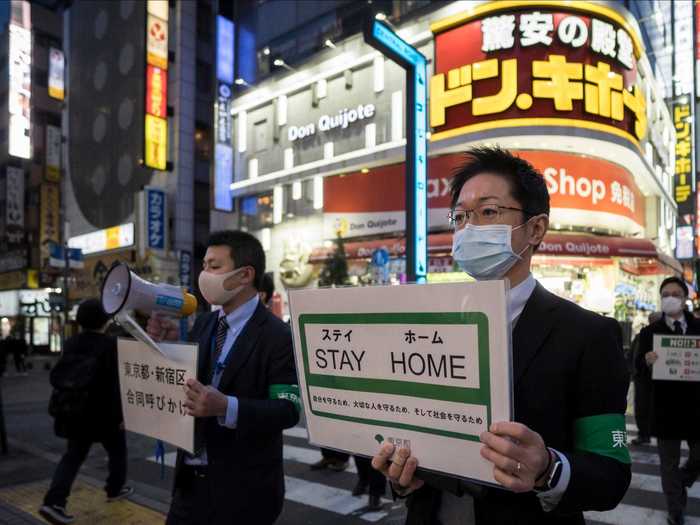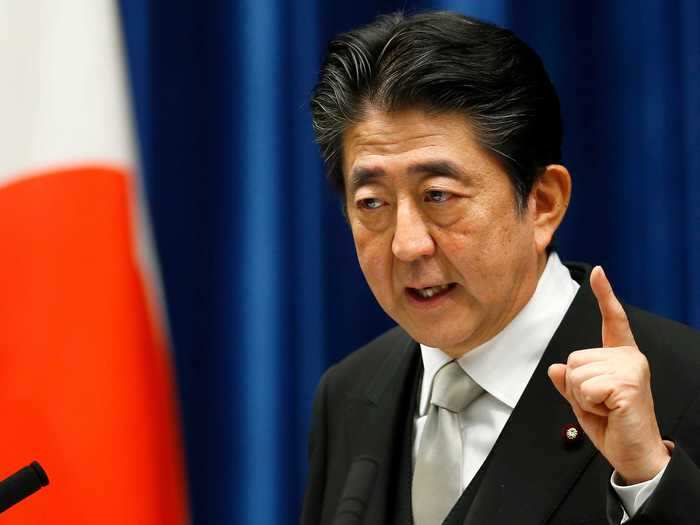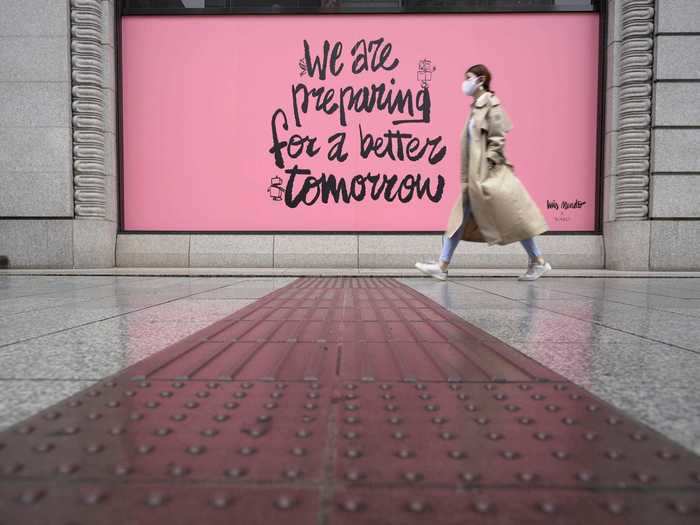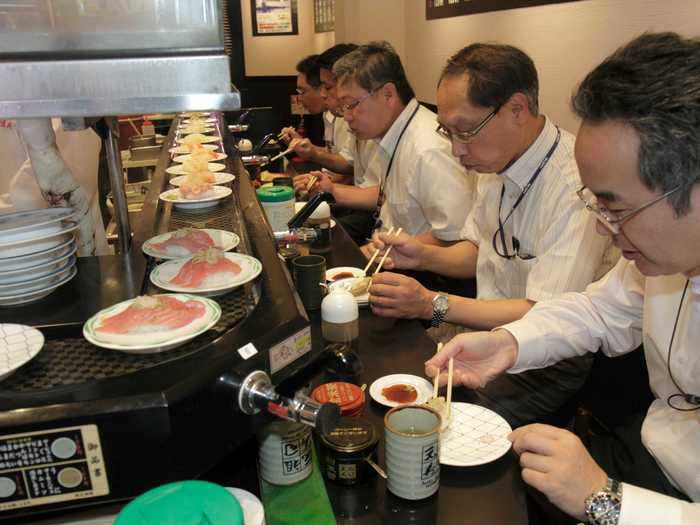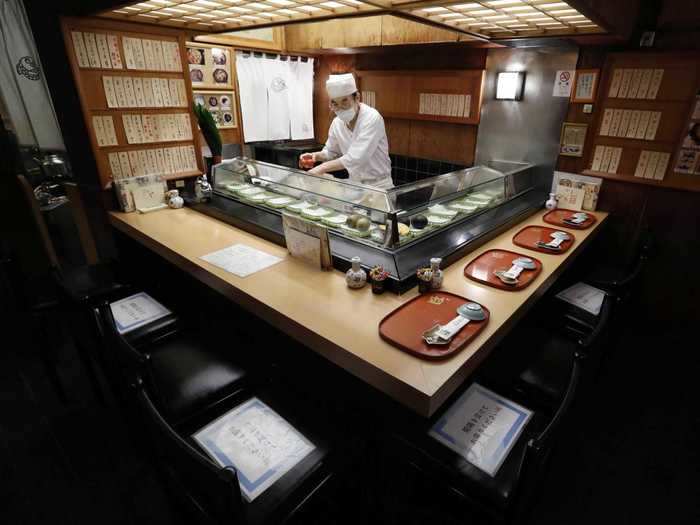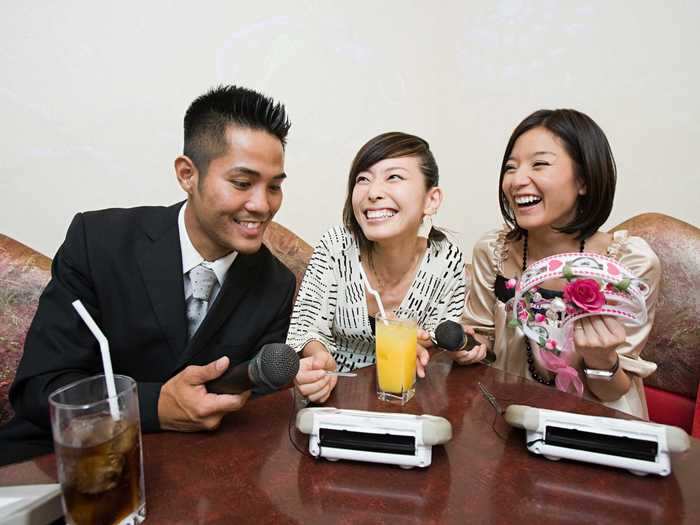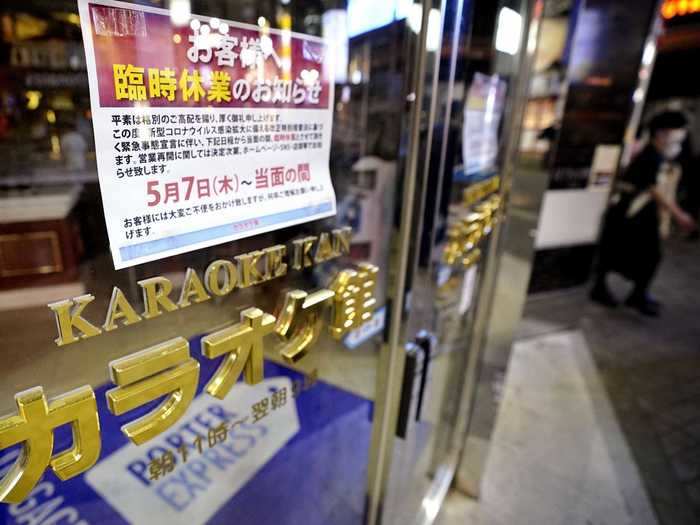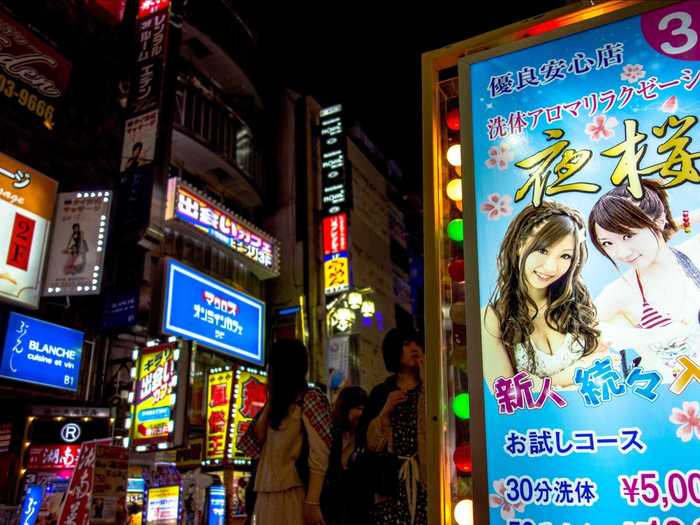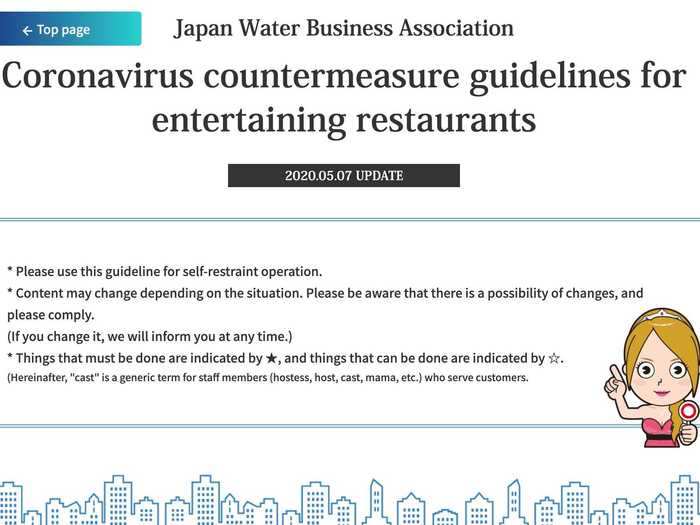A woman walks past Ginza Wako department store on May 26, 2020 in Tokyo, Japan. Ginza Wako will reopen for business from May 30, 2020.Christopher Jue/Getty Images
- On Monday, Tokyo lifted its state of emergency after the rate of new coronavirus infections and deaths slowed.
- The state of emergency went into effect on April 7 after coronavirus-related deaths exceeded 100 nationwide.
- In a press conference on Monday, Prime Minister Shinzo Abe said that Japan will need to "create a new lifestyle" as it ventures into the post-pandemic world.
- Here's how three Tokyo industries — restaurants, karaoke bars, and hostess clubs — are adapting.
Read the original article on
Business Insider
On Monday, Japanese Prime Minister Shinzo Abe lifted Tokyo's state of emergency after the rate of new coronavirus infections and deaths slowed. The state of emergency, effectively a soft lockdown, went into effect on April 7.
A fishmonger wearing a face mask waits for customers in a street in Tokyos Ueno area on May 27, 2020.
Charly Triballeau/Getty Images
While Tokyo encouraged residents to stay home and non-essential stores to close, measures were voluntary. Many restaurants and bars remained open.
Tokyo government officials hold signs as they call people to stay home in the Kabukicho entertainment area on April 11, 2020.
Tomohiro Ohsumi/Getty Images
In a press conference on Monday, Prime Minister Shinzo Abe said that Japan will need to "create a new lifestyle" based on social distancing principles in order to reopen the country while preventing a new wave of infections.
Prime Minister Shinzo Abe.
Shizuo Kambayashi/AP
So far, more than 100 industry associations across Japan have created guidelines for this new lifestyle, the Washington Post reported. Here's how how three industries in Tokyo — restaurants, karaoke bars, and hostess clubs — are adapting.
A woman walks past Ginza Wako department store on May 26, 2020 in Tokyo, Japan. Ginza Wako will reopen for business from May 30, 2020.
Christopher Jue/Getty Images
Restaurants: Before the pandemic, Tokyo residents were able to dine in close proximity at conveyor belt sushi restaurants known as kaitenzushi where they could choose from a rotating selection of fish.
Diners sit at a sushi bar restaurant with a conveyor belt in July 2011.
Jeff Greenberg/Getty Images
In March, two of Japan's largest kaitenzushi chains stopped their conveyor belt service, asking customers to order through touchpads instead. Japan's restaurant association also released guidelines encouraging the use of partitions between tables.
Fumio Horikawa prepares on May 6, 2020, to reopen his sushi restaurant with socially-distanced seating in Tokyo.
Kyodo News/Getty Images)
Restaurants are now encouraging diners to avoid face-to-face dining and listen to background music in order to minimize talking, the Washington Post reported.
While some restaurant-goers have not heeded social distancing guidelines by continuing to dine in close proximity, they are the minority, The New York Times' Tokyo bureau chief Motoko Rich observed in late April.
"Tokyo is a place where people follow rules. They wait for green lights to cross streets. In subway stations, they board escalators single file," Rich wrote.
"Some social distancing is also built into the culture. We bow rather than shake hands. Hugging is rare," she added.
Source: Fortune, Japan Times
Karaoke bars: Karaoke is a popular Tokyo pastime. Typically, groups of people share microphones, music selection touchpads, and tambourines in private, windowless karaoke rooms.
Friends sing karaoke in Japan.
Cultura Motion/Shutterstock
Karaoke bars have been closed since early April and no date has been set for when they will reopen. When they do, they have been advised to ventilate rooms, operate at half capacity, and sanitize microphones and touch pads frequently. Customers will be asked to wear masks at all times except when singing and eating.
A karaoke house remains closed in Tokyo's Shibuya area on May 25, 2020.
Kyodo News/Getty Images
Hostess clubs: Hostess clubs, a staple of Tokyo nightlife, employ well-dressed female staff members to sit with, talk to, and pour drinks for male customers.
A view of Kabukich, an entertainment district in Shinjuku, Tokyo, Japan.
Zhang Peng/Getty Images
In order to adapt to the new normal, Japan's hostess club association has announced guidelines that require customers and staff to remain at least one seat's distance apart and wear masks at all times except for eating and drinking.
Screenshot of the Japan hostess club association's "new lifestyle" guidelines.
mizusyobai.jp

